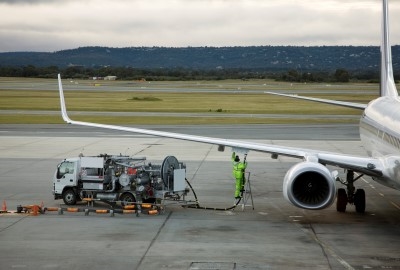Morgan Stanley analysis: SAF best medium-term solution
Air travel is expected to surge in the coming years. This trend is bound to increase the airline industry’s carbon footprint. Sustainable aviation fuel could be the best medium-term solution for decarbonization. This is one of the key takeaways from a recent analysis of the American multinational investment bank Morgan Stanley.
The report underlines the vision of Morgan Stanley that making aviation more sustainable is not just a must for the sake of the planet. It is also a business opportunity! “The global aviation industry is aiming for decarbonization. And while it will be a long and expensive journey, the transition could bring billions of dollars in investment opportunity.”

The best solution
A challenge in which sustainable aviation fuel plays a key role. “Sustainable aviation fuel, which can offer over 80% reduction in CO2 emissions over conventional jet fuel, presents the best solution for decarbonizing in the near to medium term,” says Ravi Shanker, Morgan Stanley's Freight Transportation and Airlines Analyst.
Supply and scale will be a big part of the success story for sustainable aviation fuel (SAF). This will pose serious challenges and investment implications for global refiners, airlines, chemicals and aerospace companies, the report states.
Scaling up: success factor
An important success factor is scaling up SAF production. To meet the decarbonisation goals, SAF supply would have to increase to 5.5 million barrels per day from about 20,000 at the end of 2022. This means that SAF is also big business, with great opportunities for global refiners. They “could realize $10 billion in annual profit opportunity. The impact on airlines’ profits is expected to be net neutral, at best, but SAF will allow carriers to make significant progress on meeting their environmental, social and governance (ESG) goals, with the added benefit of reduced volatility and geopolitical risk around jet fuel prices.”


